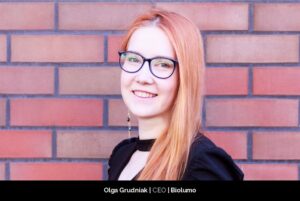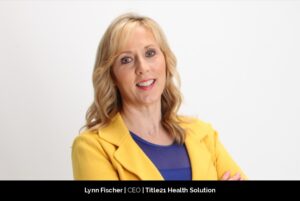Dra. Marisa López-Teijón: Helping Families Fulfill their Dream of Parenthood
The 10 Most Influential Women Making a Difference in Healthcare 2021

Human fertility has been declining all over the world since
the last few decades now, including in both developed and developing countries.
It is commonly believed that over 70 million couples suffer from infertility
across the globe. There are various reasons causing the decline in fertility.
However, the major factors include delay in the age for having the first child,
as well as the sperm quality, which has been decreasing in recent years,
especially in industrialized areas. As cases of infertility across the globe
continue to increase, Assisted Reproductive Technology (ART) is getting more
advanced and prevalent in society. Dealing with infertility is certainly
not easy however the growing acceptance of ART is helping couples achieve their
dream of becoming parents thanks to fertility treatments. Institut Marquès is fulfilling the dreams of parenthood since last
five decades and innovating the assisted reproduction technology with centers
in Barcelona, London, Ireland (Dublin and Clane) and Milan. Leading the
technology with an excellence based medical care, Institute Marquès treats
patients from more than 50 countries. Institut Marquès is a center of
international renown in Gynecology and Assisted Reproduction with almost a
century of experience.
A century old legacy driving the way into future
Institut Marquès owes its name to the family whose members
have represented the center’s unity and continuity throughout time. Dr Vicens
Marquès i Bertran (Barcelona, 1895-1977) began practicing as a gynecologist in
1922, ninety-eight years ago. Around the end of the ‘80s, both the elder son,
Dr Leonardo Marquès Amorós, and Dra. Marisa López-Teijón, initiated their
activity at Institut Marquès. They introduced very advanced techniques for the
time, such as surgical and diagnostic hysteroscopy, and improved the already
existing assisted reproduction techniques. In 1989, they inaugurated their
first In-Vitro-Fertilization Laboratory. Throughout the following years, the
laboratory kept on expanding and incorporated the newest techniques. The fourth
generation of gynecologists of the Marquès family, Dr Borja Marquès, is now
also part of the clinic’s team. “Our main motivation is to help families with
fertility issues; to fulfill their dream of parenthood” explains Dra. Marisa
López-Teijón, CEO of Institut Marquès.
Devising the most advanced technology for reproductive
medicine
The center has a broad portfolio of Assisted Reproduction
services with its own Premium Sperm Bank and a broad program of gamete and
embryo donation. Institut Marquès
offers several alternatives for those patients that need a Donor Artificial
Insemination or an In Vitro Fertilization (IVF), depending on whether they want
to use anonymous or identifiable donors for their treatment. “We have several
specialized treatment units: Genetic Advice and Hereditary Diseases, Recurrent
Miscarriages, Oncology and Reproductive Medicine and Andrology (male
fertility). Institut Marquès keeps on devising the most advanced technology for
reproductive medicine in order to help out people with fertility issues to
build a family. Next to the basic treatment, we recommend some special add-on
techniques, proposing only those that have shown to be effective such as the
Preimplantation Genetic Test (PGT), diverse techniques focusing on the male
factor (Fertile, IMSI…) or the Embryoscope incubator (Time-lapse technology),”
Dra. López-Teijón shares.
Developing
and implementing pioneering and innovative projects
Dra.
López-Teijón firmly shares that they are constantly carrying out innovative
scientific studies to improve Assisted Reproduction treatments. Music, mobile
technology, telemedicine and the use of virtual reality are some of the
innovations that Institut Marquès is already using in its clinics. She
explains, “We have developed a world pioneer innovation project with the aim to
improve the IVF by implementing music in all our embryo incubators in our
Assisted Reproduction laboratories. Our scientific studies have demonstrated
that music micro-vibrations produce movements similar to those that fertilised
eggs experience in their journey through the fallopian tubes and the uterus;
they stir the culture medium, achieving a more homogeneous distribution of nutrients
and scattering the waste metabolites. The use of music represents a significant
advance in order to reproduce in our laboratories the natural conditions that
embryos would have if they were in the maternal uterus. It is also a key factor
of the increase of our success rates.” On the other hand, she believes mobile
phones have turned into another technological ally to improve the results of
fertility treatments. The Embryomobile app, developed by Institut Marquès,
allows parents a real time follow-up of their embryos while they are in the
incubator from any location. It is a commitment to transparency that,
furthermore, reduces the stress of the mother before the embryo transfer
considerably, favouring the implantation to achieve pregnancy. Institut Marquès
is the only centre where patients can really see how their embryos are.
Additionally,
Dra. López-Teijón says telemedicine is the medicine of the future. In this
area, Institut Marquès is using videoconferences to communicate with patients
all over the world. In addition, the centre has developed and patented the
Sperm Freezekit. This new technique allows patients to cryopreserve their sperm
anywhere in the world and send it to the clinic, without having to travel.
“This is a practical and convenient solution for males who are away from home
and who have difficulties for travelling to the clinic to undergo fertility
treatment with their partner or, simply, for privacy reasons. And, always
thinking about the male, the sample delivery rooms at Institut Marquès have an
evocative design and include erotic devices to improve sexual arousal, such as
virtual reality glasses. This is the Erotic Personal System, a special protocol
aimed at obtaining the best sperm as Institut Marquès’ studies have established
a link between semen quality and the erotic visual stimulation through virtual
reality,” Dra. López-Teijón adds.
One of its kind centers delivering unique service
The center has become an international reference in its
sector, with presence in four European countries. It is highly recognized
because of its studies on sperm quality and its Andrology Unit, specialized in
male infertility. Thanks to its research, the relationship between
environmental toxins and low male fertility has been demonstrated. The “Male Fertility
Unit” is one of the services that differentiate this clinic from its
competitors. This is something noteworthy to point out, since, currently, it is
estimated that the male factor (male infertility) is associated with more than
50% of cases of conjugal infertility, In 30% of cases, the male factor is the
only responsible party and in the remaining 20%, it appears combined with a
female factor. Fertility problems have increased over the past years. Apart
from sperm quality, Dra.
López-Teijón also says that we must also take into account the
appearance of new family models that expand the profile of women who opt for
motherhood, either as a couple or on their own.
She and her team are very proud of their Embryoadoption
Program. Dra.
López-Teijón explains, “The embryo adoption program was launched in
2004 to give the embryos frozen in our center a possibility to live. From the
beginning, the response has been exciting because of the social acceptance, the
support offered by different groups and the enthusiasm with which women from
all over the world come to us to adopt them. There are fewer international
adoptions of children and more international adoptions of embryos. Behind each
case, there is a special story, either of many failures in previous treatments
or having given up the possibility of being parents.”
Institut Marquès was pioneer in the world launching this
initiative: Embryos that are not transferred remain under the custody of the
clinic when the parents do not want to decide on their destination. Therefore,
this center of Barcelona decided to offer them in adoption to its patients. In
accordance with the Spanish law, the embryos available under this program come
from healthy parents, under the age of 35, who have successfully undergone an In-Vitro-Fertilization
treatment and who no longer want to have more children. During the 15-year life
of the program, patients from 124 different nationalities attended the Institut
Marquès’ centers. It is the clinic in the world where more embryo adoptions
take place. Dra.
López-Teijón receives plenty of feedback from her patients, also
from those that have not yet started their treatment with the center. The
following is an example of the many testimonials that keeps the team at
Institut Marquès motivating daily:
Institut Marquès will be my place
My history with Institut Marquès is still very recent; I
barely made my first consultation today via Skype, since I live in the United
States. But my path through infertility is much longer and that’s why I want to
write these words to you. I have already done an In Vitro Fertilisation
treatment, which failed due to chromosomal problems in the embryos. Looking for
options to fulfill my dream of being a mother, I found Institut Marquès, where
they carry out embryo adoption. I was amazed and immediately contacted them. It
didn’t take them long to answer me and give me a free of charge appointment.
The interview with the doctor flowed with spectacular naturalness and answered
all my doubts. She gave me all the time I needed and made me feel very
comfortable. I have not yet made the final decision to undergo embryo adoption,
but I greatly appreciate the human warmth and professionalism of all the staff
at Institut Marquès. As soon as this pandemic calms down, I will travel to meet
you. And I have no need to search for more options. This will be my place.
Mariana
(New York, May 2020)
One of the most influential researchers in the world
As the CEO of Institut Marquès, Dra. López-Teijón divides her time
between Institut Marquès’s General Management, the consultation and the
Research and Development Project Team. She is very proud of the fact that the
scientific platform ResearchGate set her among the top 10% of the most
influential researchers in the world. “Our research about the effects of music
at the beginning of life has to be the one of the greatest achievements. In
this field, international institutions have recognized us, including the Ig
Nobel Prize for Medicine, the first awarded in the category of Obstetrics in
the 27-year history of the award at Harvard University,” she further asserts.
Dra. López-Teijón’s motivations are “our patients, their story, the colleagues
at Institut Marquès, nurturing team-work and everybody who is part of it.”
Additionally, “The best Formula 1 pilots are in the best teams, the best
football and basketball players are in the Premier League teams. The same
happens with doctors. Therefore, fertility clinics should make their biggest
investment in their medical staff.” Advising aspiring businesswomen, Dra. López-Teijón says,
“They should pursue excellence in what they do: excellence is not perfection;
excellence is not predicting the future: it is inventing it by carrying out
innovative and courageous projects. I also believe that excellence is a state
of mind that involves determination, ingenuity, and fun. Excellence is to
exceed expectations: to promise a star and give away the sun.”
Continuing fighting to normalize the social consideration
of infertility
Dra. López-Teijón proudly shares that Institut Marquès will continue to innovate and adapt around its latest findings to ensure it remains successful in all of its endeavors. On the other hand, infertility in Europe is still taboo. Society’s attitude towards infertility can condition the way in which the treatment is experienced. In clinical practice it is always helpful to know how to help the patient stay emotionally positive. Institut Marquès will keep fighting to normalize the social consideration of infertility. Furthermore, she believes progress in technology is changing how things work and innovation in healthcare should be oriented towards facilitating processes for patients. “Telemedicine is imposed thanks to the wide range of possibilities offered by progress in email communication and fast messaging. The consultations via Skype are increasing, patients in our center can observe the development of their embryos online and now we have created the sperm self-freezing kit. This is a new method for the patients to freeze their sperm themselves wherever they are. It is named Sperm Freezekit and it facilitates the sperm collection to those men who are undergoing an Assisted Reproduction treatment. This kind of projects will write our roadmap for the future,’ Dra. López-Teijón concludes.













